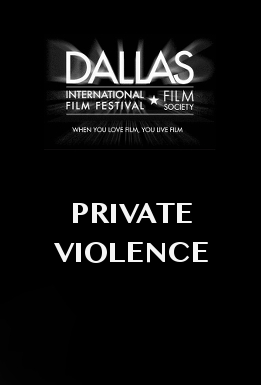In a way that is reminiscent of The Inivisible War, Private Violence is a documentary working to shed light on the often complex issues surrounding domestic violence. Private Violence follows the work of Kit Gruelle, an advocate well known for her work in the field. The film centers primarily on the story of Deanne, a woman who was abducted into a truck and severely beaten across several state lines for days. She has decided to seek justice for the atrocities she's survived (the photos are, at best, horrific). The whole process is actually a rather sad discourse on the state of our justice system. The story expands out every so often to touch on other women's lives and difference aspects of domestic violence.
During the film, Kit Gruelle works with other women in various stages of the abuse process. Some are still in the situation and trying to leave. Others are out and trying to get on their feet. Another was actually killed by her estranged husband, and Kit tries to comfort the family and get a better idea of what happened.
As interesting as all of the stories of the women are, I found myself often wishing that Private Violence would show all of each woman's story instead of teasing little breadcrumbs through the film. Aside from Deanne's story, most of the women's stories weren't terribly long, maybe 10-20 minutes at the most. Trying to keep track of which woman and which details went together often became a bit cumbersome, especially since none of the stories were related at all.
The film is eye-opening, especially for those who may as personally involved with domestic violence. With the statistic quoted in the film as being 1 in every 4 women being abused by a domestic partner in her lifetime, it's definitely a widespread issue. The piecemeal storytelling issue aside, Private Violence is an interesting social documentary, but it is tough to watch at times.

